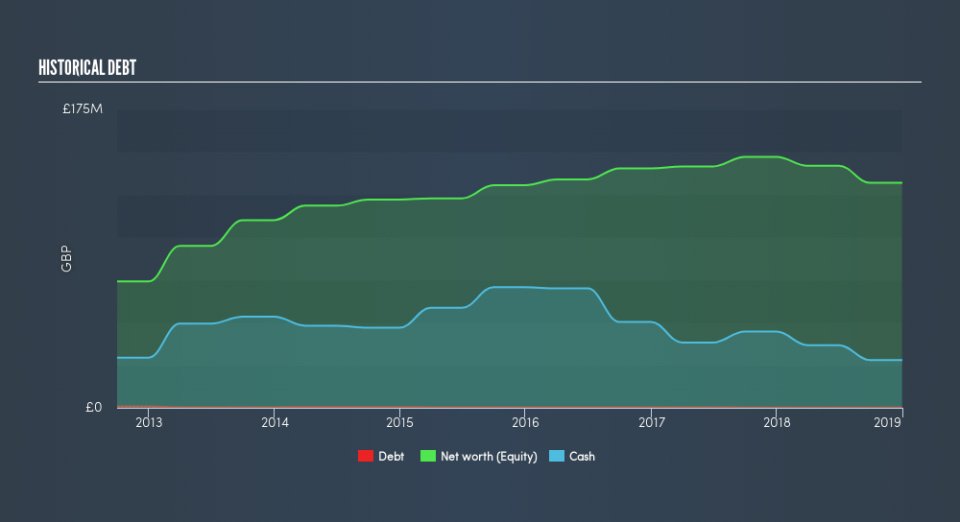Is Xaar (LON:XAR) Using Debt In A Risky Way?

Some say volatility, rather than debt, is the best way to think about risk as an investor, but Warren Buffett famously said that 'Volatility is far from synonymous with risk.' It's only natural to consider a company's balance sheet when you examine how risky it is, since debt is often involved when a business collapses. We can see that Xaar plc (LON:XAR) does use debt in its business. But should shareholders be worried about its use of debt?
When Is Debt Dangerous?
Debt and other liabilities become risky for a business when it cannot easily fulfill those obligations, either with free cash flow or by raising capital at an attractive price. If things get really bad, the lenders can take control of the business. However, a more frequent (but still costly) occurrence is where a company must issue shares at bargain-basement prices, permanently diluting shareholders, just to shore up its balance sheet. Of course, debt can be an important tool in businesses, particularly capital heavy businesses. The first step when considering a company's debt levels is to consider its cash and debt together.
Check out our latest analysis for Xaar
How Much Debt Does Xaar Carry?
You can click the graphic below for the historical numbers, but it shows that Xaar had UK£136.0k of debt in December 2018, down from UK£167.0k, one year before. However, its balance sheet shows it holds UK£27.9m in cash, so it actually has UK£27.8m net cash.
How Healthy Is Xaar's Balance Sheet?
The latest balance sheet data shows that Xaar had liabilities of UK£20.1m due within a year, and liabilities of UK£973.0k falling due after that. On the other hand, it had cash of UK£27.9m and UK£24.7m worth of receivables due within a year. So it actually has UK£31.5m more liquid assets than total liabilities.
This surplus liquidity suggests that Xaar's balance sheet could take a hit just as well as Homer Simpson's head can take a punch. On this view, it seems its balance sheet is as strong as a black-belt karate master. Succinctly put, Xaar boasts net cash, so it's fair to say it does not have a heavy debt load! There's no doubt that we learn most about debt from the balance sheet. But it is future earnings, more than anything, that will determine Xaar's ability to maintain a healthy balance sheet going forward. So if you want to see what the professionals think, you might find this free report on analyst profit forecasts to be interesting.
In the last year Xaar actually shrunk its revenue by 37%, to UK£64m. To be frank that doesn't bode well.
So How Risky Is Xaar?
We have no doubt that loss making companies are, in general, riskier than profitable ones. Anf the fact is that over the last twelve months Xaar lost money at the earnings before interest and tax (EBIT) line. And over the same period it saw negative free cash outflow of UK£15m and booked a UK£12m accounting loss. With only UK£28m on the balance sheet, it would appear that its going to need to raise capital again soon. Even though its balance sheet seems sufficiently liquid, debt always makes us a little nervous if a company doesn't produce free cash flow regularly. For riskier companies like Xaar I always like to keep an eye on the long term profit and revenue trends. Fortunately, you can click to see our interactive graph of its profit, revenue, and operating cashflow.
If, after all that, you're more interested in a fast growing company with a rock-solid balance sheet, then check out our list of net cash growth stocks without delay.
We aim to bring you long-term focused research analysis driven by fundamental data. Note that our analysis may not factor in the latest price-sensitive company announcements or qualitative material.
If you spot an error that warrants correction, please contact the editor at editorial-team@simplywallst.com. This article by Simply Wall St is general in nature. It does not constitute a recommendation to buy or sell any stock, and does not take account of your objectives, or your financial situation. Simply Wall St has no position in the stocks mentioned. Thank you for reading.

